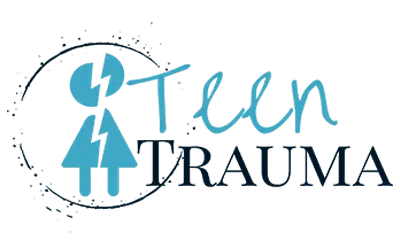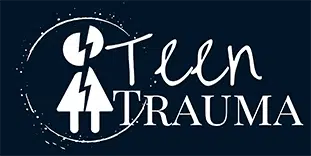When the Unthinkable Happens: Physical Abuse of a Child By a Parent or Caregiver
In most cases of physical abuse of children, no one knows it is happening except the child and the abuser. How something so painful and horrendous could continue for many months or even years is bewildering.
How could one parent not know the other parent is physically abusing their own child? If a parent discovers the other parent is abusing their child, what is the first thing they should do?
Why Children Stay Silent About Being Physically Abused
The psychological conflicts that abused children grapple with ultimately lead to them becoming troubled, dysfunctional adults unless trauma is resolved with the help of mental health counselors. One of the most difficult conflicts abused children must later come to terms with is why they didn’t tell anyone about the abuse. Reasons why these children “don’t tell” have been identified by psychologists and include but are not limited to:
- They are afraid their parents will be angry with them because they think their parents might consider the abuse their “fault.”
- The child’s abuser is someone they have known for a while and have grown to love and trust.
- They are afraid of being taken from their home by the police or other authority figure.
- They don’t think anyone will believe them.
- They believe that somehow it’s okay or expected for a caregiver to hit them
- They feel too guilty or ashamed to divulge the abuse
Older children and teenagers feel more self-conscious about being physically abused and can be truly terrified of how peers respond to them if they report the abuse.
Teens suffering physical abuse at the hands of a parent or caregiver report having fantasies about getting retribution or revenge on their abuser without involving anyone else. However, abused children of any age may undergo a radical transformation in how they view their environment long after the abuse has stopped.
Personality disorders, substance abuse, self-destructive behavior, and chronic involvement with law enforcement are common physical abuse effects that negatively impact a child’s perspective of how the world treats them.
Abused children of any age may undergo a radical transformation in how they view their environment long after the abuse has stopped.
teentrauma.com Tweet
Risk Factors of Parents or Caregivers Who Physically Abuse Children
Research indicates several factors may contribute to someone being physically abusive towards a child. Mentally unstable individuals, addicted to drugs or alcohol, have difficulty controlling their anger, or were victims of abuse themselves are more likely to abuse a child. Correlations between the age at which a person becomes a parent, and lack of education are also risk factors for being physically abusive. Teen parents who don’t finish high school or do not continue their education are at extremely high risk of abusing their children.
The World Health Organization reports on characteristics of children and teens that increase the chance they will be victims of parental or caregiver physical abuse trauma:
- Children under four years of age
- Teens between 13 and 16
- Children who fail to measure up to parental expectations
- Children who were unwanted by either parent
- Special needs children (autism, developmental/intellectual disorders, having physically abnormal features)
- Children who identify as LGBTQ
While these risk factors and characteristics are commonly indicated in most cases of physical abuse, parents should know that anyone could potentially be physically abusive towards a child.
Alternately, children and teenagers who are “A” students, popular with peers, and seemingly well-adjusted could also be victims of physical abuse.
If your child tells you an ex-spouse, a spouse, or other caregiver has been physically abusing them, stop and take several deep breaths before speaking or taking action.
Rationally confronting the fact that a child is physically abused by a caregiver and responding as empathetically and supportively as possible begins the process of helping and healing the child.
4.4 million referrals were received by CPS Agencies in 2019. 7.9% of these referrals involved an alleged maltreatment of approximately 7.9 million children.*
4 things you must do if your partner or a caregiver is abusing your child
If your child tells you that the other parent or a caregiver is abusing them, try to remain calm and reassure the child that you believe them. When abused children understand they will be protected from further abuse because an adult believes them, they are more likely to continue disclosing details essential for having the abuser charged, convicted, and imprisoned.
- Always tell the child exactly what is going to happen next.
- Make an appointment with your primary care physician to have the child examined within several days of learning of the abuse.
- Contact trusted family members and close friends for emotional support during this difficult time.
- Call the child’s school counselor or psychologist and inform them of what is happening to the child. School counselors can put you in touch with mental health professionals who deal exclusively with abused children and their parents.
Young children may start sucking their thumb (if they sucked their thumb as babies or toddlers), wet the bed, or even resort to talking “like a baby.” Increased clinginess, refusing to sleep alone, separation anxiety, nightmares, and phobias are common reactions of abused children.
A parent may be mystified by a child’s fears until they learn more about where, when, and how the physical abuse occurred. For example, if a child was hit repeatedly with a belt, they may become terrified at just the sight of a belt.
What to do when your world is spinning out of control?
Building trust, self-esteem, and confidence in your child is vital for the healing process to begin and continue throughout the child’s life.
Consistently express love and support both physically and verbally. Give plenty of hugs and leave encouraging notes in your child’s room. Never stop your child from expressing their thoughts or emotions, no matter how upsetting they may be.
Talking with your child about the abuse is the best support you can give your child. Tell them it is okay to feel mad, hurt, betrayed, and sad. Be patient and consistent in the way you respond to your child. Make sure you always give the child your full attention whenever they need and want it.
Please visit our resources page to find legal services, housing, hotlines, and access to treatment today. To learn more about teen trauma related to violence or emotional abuse including an eye opening look at the signs of child abuse.
The National Domestic Violence Hotline
offers free confidential help 24/7.
Call 1.800.799.SAFE (7233) or Text "START" to 88788










